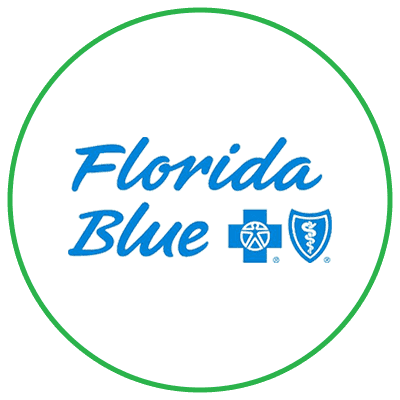

We Accept Most Major insurances
MACON FENTANYL ADDICTION TREATMENT
Leading Fentanyl Abuse Treatment and Support in Georgia
Fentanyl is a powerful synthetic opioid analgesic that has similarities to morphine but can be up to 100 times more potent. It has seen widespread use in medical settings as an anesthetic and pain reliever, but it also has a high potential for abuse and addiction. Fentanyl abuse can lead to serious health problems, including overdose and death, especially when combined with other drugs or alcohol. Unfortunately, the misuse of fentanyl has become increasingly common across the United States due to its availability in many forms such as tablets, patches, powder, or even lollipops.
Call (478) 216-1110 or contact us online to schedule an appointment and learn more about fentanyl addiction treatment in Macon.
Any person struggling with fentanyl addiction should seek professional help so they can receive appropriate treatment and support. At the Georgia Recovery Campus, we recognize how insurmountable a fentanyl addiction may seem but are committed to leveraging our extensive resources to help patients detox and get on the road to recovery. Our Macon fentanyl addiction treatment professionals make it their mission to deliver quality care to those with substance abuse and mental health issues in a state-of-the-art facility that puts patients first.
The Risks of Fentanyl Misuse
Fentanyl is highly addictive because it triggers the same reward pathways in the brain as other opioids. When taken, fentanyl binds to opioid receptors which causes a flood of dopamine and serotonin in the brain, creating an intense feeling of euphoria that can be difficult to stop seeking. When abused, fentanyl can lead to serious health problems, including overdose and death if combined with other drugs or alcohol. When used regularly, tolerance and physical dependence on the drug can develop quickly, forcing users to take more fentanyl or risk severe withdrawal symptoms if use is stopped abruptly. As such, fentanyl addiction often requires professional help to ensure long-term recovery success.
Identifying Fentanyl Addiction: Key Signs and Symptoms
If you or someone you know is showing signs of fentanyl addiction, it is essential to seek help from a healthcare professional or addiction specialist for assessment and treatment options. Signs of fentanyl addiction can vary but may include:
- Increased Tolerance: Needing higher doses of fentanyl to achieve the desired effects over time.
- Withdrawal Symptoms: Experiencing physical and psychological withdrawal symptoms when not using fentanyl, such as nausea, sweating, anxiety, or muscle aches.
- Obsessive Thinking: Spending a significant amount of time thinking about obtaining and using fentanyl, to the detriment of other activities and responsibilities.
- Social Isolation: Withdrawing from friends, family, and social activities in favor of spending time using fentanyl.
- Continued Use Despite Consequences: Continuing to use fentanyl despite experiencing negative consequences such as health problems, financial difficulties, or legal issues.
- Loss of Control: Feeling unable to control or stop using fentanyl despite wanting to quit or cut back.
- Changes in Behavior: Engaging in risky or erratic behavior to obtain fentanyl, such as stealing or lying.
- Neglecting Responsibilities: Neglecting important obligations such as work, school, or family responsibilities due to fentanyl use.
- Changes in Appearance: Physical changes such as weight loss, changes in hygiene, or track marks from injecting fentanyl.
- Craving: Experiencing intense cravings or urges to use fentanyl.
The Long-Term Effects of Fentanyl Dependency
What Are the Symptoms of Fentanyl Abuse?
Recognizing that there is a problem is the first step to helping someone who may have developed a fentanyl dependency. Remember, fentanyl can be a legal, prescribed drug, and many people who have become dependent on it were introduced to it through legitimate medical channels. Once someone starts using fentanyl, however, it can be difficult to stop. That is why it is so important to look out for signs that a loved one may be abusing fentanyl so that you can intervene before the abuse worsens or tragedy strikes.
People who have become addicted to fentanyl may feel ashamed of their addiction or may not want to talk about it out of fear of judgment or stigma. It can consequently be difficult to have meaningful conversations with addicted loved ones because they are often in denial, withdrawn, or unwilling to open up about their struggle.
If you are preparing to have this conversation with your loved one, try to remain patient, non-judgmental, and compassionate whenever possible. Emphasize that you are concerned about their safety and well-being and only want to help them get the care they need.
Signs that someone may be abusing fentanyl include:
- Anxiety
- Bloodshot eyes
- Decreased libido
- Depression
- Difficulty concentrating
- Elevated energy levels
- Frequent nosebleeds
- Inability to feel pleasure
- Increased irritability
- Increased tolerance for pain
- Irregular sleeping habits
- Poor hygiene
- Reckless decision-making
- Shortness of breath
- Sudden weight loss
- “Track marks” near veins
If you or someone you know is considering pursuing a detox, we invite you to call (478) 216-1110 or contact us online to learn more about our program’s approach to fentanyl abuse.


Why Choose Georgia Recovery Campus?
-
TransparencyWe understand how difficult recovery is. We work one on one with you every step of the way to ensure we are helping you make the necessary changes to obtain the life you deserve.
-
Person-FocusedWhen you come to our facility, you are not only getting a beautiful campus and quality services, but you are also getting a team who truly cares about your recovery.
-
Top-Class Recovery TeamOur dedicated, experienced, and compassionate team of experts is here for you every step of the way. We have the tools, resources, and knowledge to help you on your journey.
-
Customized TreatmentAt Georgia Recovery Campus we treat the entire mind, body, and spirit. When you come to us, we work one on one with you to select the track that would be most beneficial to you and your goals.




